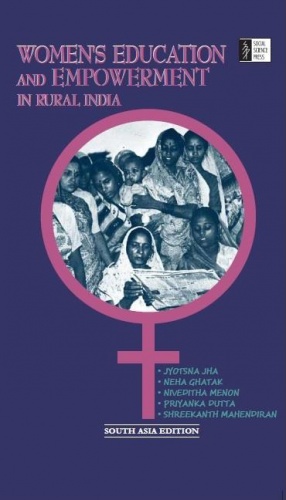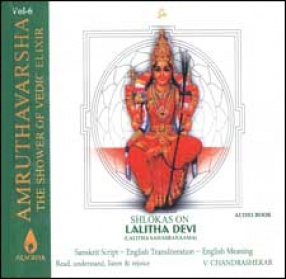Women's Education and Empowerment in Rural India
Women’s Education and Empowerment in Rural India, as its title suggests, is about understanding women’s empowerment in rural India. In this extremely important book, Jyotsna Jha, Neha Ghatak, Niveditha Menon, Priyanka Dutta, and Shreekanth Mahendiran explore the pathways and roadblocks to women’s empowerment. They do this through an evaluation-centred research on Mahila Samakhya in Bihar, a Government of India-funded scheme of the Education Department, aimed at providing ‘education for women’s equality’. The book evaluates the impact of the scheme and its interventions on the lives of women from the most marginalised communities. It traces the meaning and the process of the various facets of empowerment as well. These include how women’s empowerment effect their mobility; savings; participation in economic activities; self-efficacy; decision-making and political participation. It also measures the intergenerational impact of empowerment, through the choices that women make about their daughters’ education and marriage. It also examines the way women, through the process of empowerment, are able to adjust and negotiate with dominant social institutions such as the family, and policy processes and their outcomes. In doing so, the book raises some important questions about the developmental implications of women’s education and social policy, planning and implementation. This book will be of enormous value to government departments and all social science departments in universities such as political science, education, sociology, economics and gender studies.
Contents: 1. Empowerment, Education and Social Change: Understanding the Conceptual Context of Mahila Samakhya. 2. Mahila Samakhya: History, concept and design. 3. Women in Bihar: The multivalent contexts of deprivation and struggle. 4. Women’s economic empowerment: Indivisible part of a synergetic process. 5. Breaking the cycle: Understanding the inter-generational impact of MS. 6. Economics of empowerment: A web of negotiations and adjustments. 7. Conclusion: Lessons for understanding pathways to women’s empowerment. 8. References.
Get it now and save 10%
BECOME A MEMBER







Bibliographic information
Niveditha Menon